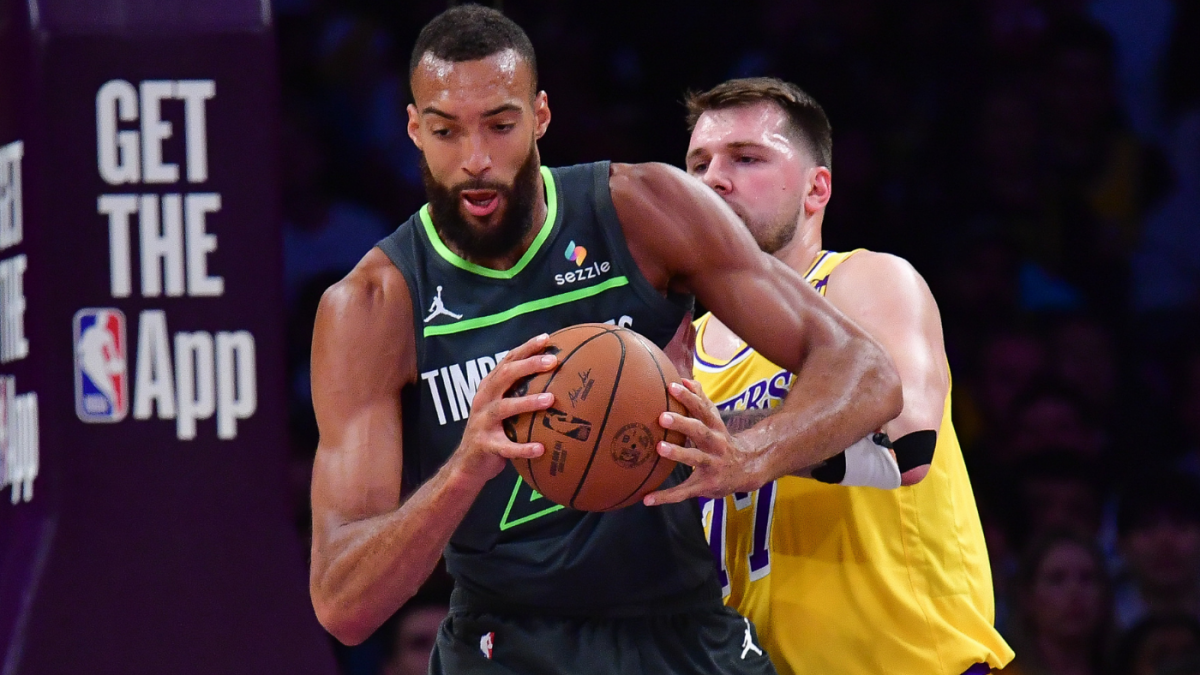“`markdown
The Unlikely Hero: Rudy Gobert’s Defining Moment
The Minnesota Timberwolves’ playoff clash with the Los Angeles Lakers wasn’t just a game—it was a narrative flipped on its head. In a contest where the Timberwolves’ offense collapsed spectacularly, Rudy Gobert, often scrutinized for his offensive limitations, became the linchpin of a historic victory. This analysis dissects Gobert’s career-night, the Lakers’ strategic miscalculation, and the ripple effects for Minnesota’s postseason aspirations.
—
When Shooting Fails: A Team’s Desperation
The Timberwolves’ offensive struggles in Game 5 bordered on surreal. A staggering 18 consecutive missed three-pointers set an NBA playoff record for futility, exposing their reliance on perimeter scoring. With stars like Anthony Edwards and Karl-Anthony Towns ice-cold, the game seemed destined for a Lakers rout. Yet, adversity revealed an unexpected catalyst: Gobert’s offensive eruption.
His 27 points and 24 rebounds weren’t just numbers—they were lifelines. Gobert capitalized on putbacks, rolls to the rim, and free throws, compensating for his teammates’ misfires. This wasn’t just a breakout; it was a masterclass in adaptability.
—
Small-Ball’s Achilles’ Heel: Gobert’s Revenge
The Lakers’ small-ball lineup, featuring LeBron James at center, aimed to outpace Minnesota with speed and spacing. Instead, it played directly into Gobert’s strengths.
– Paint Domination: Gobert’s 18 offensive rebounds (nine of his own misses) extended possessions and demoralized the Lakers. His sheer size overwhelmed smaller defenders, turning missed shots into second-chance points.
– Defensive Gravity: Even without blocking shots, Gobert’s presence forced Lakers players to alter drives, disrupting their rhythm. His +23 plus/minus underscored his two-way impact.
This wasn’t just a win for Gobert—it was a blueprint for neutralizing small-ball: punish mismatches, control the glass, and dictate tempo.
—
Beyond the Box Score: Leadership Under Fire
Gobert’s performance transcended statistics. Earlier in the series, critics lambasted him for being “unplayable” against quicker lineups. Game 5 was his emphatic rebuttal.
– Mental Toughness: Amidst the Timberwolves’ shooting drought, Gobert’s relentless energy kept the team afloat. His screens, defensive communication, and hustle plays injected stability.
– Clutch Gene: With the game tied late, Gobert’s free throws and a critical tip-in sealed the win—a rarity for a player often sidelined in crunch time.
This resilience mirrored the Timberwolves’ identity: gritty, unyielding, and capable of winning ugly.
—
The Ripple Effect: What This Means for Minnesota
Gobert’s heroics aren’t just a feel-good story—they’re a strategic revelation.
—
Conclusion: A Legacy-Defining Night
Rudy Gobert’s 27-and-24 masterpiece wasn’t just a career-high—it was a statement. In a league obsessed with spacing and guard play, he reminded the world of old-school dominance: rebound, defend, and outwork. For the Timberwolves, this victory wasn’t just about advancing; it was about discovering a new dimension to their identity. As the playoffs intensify, one truth is clear: underestimate Gobert at your peril.
*The Timberwolves’ ceiling just got higher, and it’s anchored by the man in the middle.*
“`











